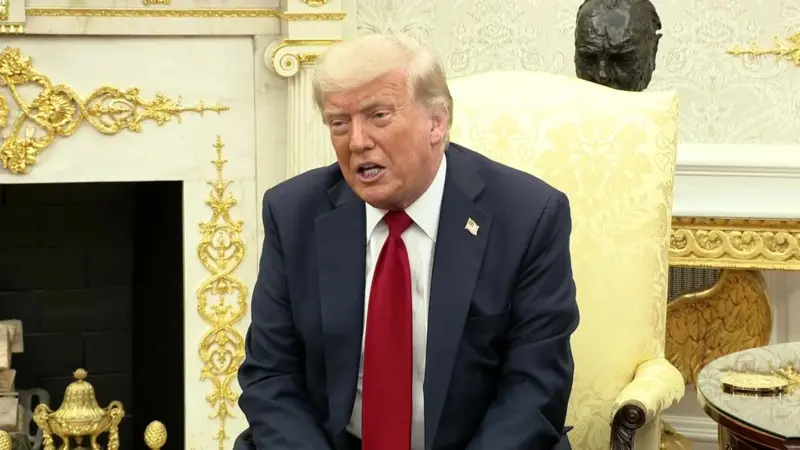President Karin Keller-Sutter has said that the Swiss government is disappointed by the US tariffs imposed on Switzerland, with the shock 39% figure much higher than expected – and one of the highest rates for any country.
Keller-Sutter expressed the Federal Council’s disappointment as she spoke with a news agency on the sidelines of a Swiss national day event in Ruetli. “It is a pity that there is a tariff that is much higher than what we negotiated,” she said.
Although the pharmaceuticals sector was not included in the tariffs, she noted that the increased duties would have a “very bad” effect on the Swiss economy.
She added that the government has already been in touch with Washington to find a solution.
The Swiss President said that the 39% figure was a surprise, because negotiators had hashed out a deal last month with the Trump administration that apparently wasn’t approved by the American leader himself.
“We will now analyze the situation and try to find a solution. I can’t say what the outcome will be, but it will certainly damage the economy.”
Karin Keller-Sutter
The US goods trade deficit with Switzerland was $38.5 billion last year, a 56.9% increase over 2023, according to the Office of the United States Trade Representative.
Keller-Sutter said that she believes Donald Trump ultimately chose the 39% tariff, because the figure rounded up from the $38.5 billion goods trade deficit. “It was clear that the President was focused on the trade deficit and only this issue,” she said.

The White House said on Friday that Switzerland is facing a higher 39% tariff rate on its exports because it refused to make “meaningful concessions” by dropping trade barriers with the US.
A White House official said, “Switzerland, being one of the wealthiest, highest income countries on earth, cannot expect the United States to tolerate a one-sided trade relationship.”
The Swiss government responded with “great regret” to the US decision to impose 39% tariffs on Swiss imports despite progress in bilateral talks and the “very constructive stance” of Switzerland.
The 39% tariff on the European nation is one of the steepest announced by the White House and is a significant increase from the 31% tariff rate proposed in April.
Swiss companies will now have one of the steepest export duties — only Laos, Myanmar and Syria had higher figures, at 40-41%. The 27-member EU bloc and Britain, meanwhile, negotiated 15% and 10% tariffs, respectively.
Switzerland, a major pharmaceutical exporter, conducted $88.4 billion in two-way trade with the US in 2024. Precious metals and luxury watches are also a major component of Swiss exports to the US.
The tariff “significantly deviates” from a draft agreement Bern approved in early July, which the Swiss said was the product of months of discussions with the US.
The government said it will continue to try to reach a deal with the US.
Karin Keller-Sutter, the country’s President and Finance Minister, said on Thursday, July 31, 2025, that she had not been able to reach an agreement during a final call with US President Donald Trump, adding “the trade deficit is still a key issue.”
Tariff Rate Galling To Federation of the Swiss Watch Industry
The 39% figure was especially galling to the Federation of the Swiss Watch Industry, because Switzerland in 2024 got rid of import tariffs on all industrial goods.
The federation said in a statement, “As Switzerland has eliminated all custom duties on imported industrial products, there is no problem with reciprocity between Switzerland and the US.” It added that the tariffs constitute a severe problem for bilateral relations.
Swiss watch exports were already facing a prolonged slowdown, with significant declines in the United States, Japan and Hong Kong, according to the federation’s June figures, the most recent available.
Multinational chocolatiers; Nestlé and Lindt & Sprüngli said they have production lines in the US for American customers. However, small- and medium-sized Swiss companies are predicted to suffer under the tariffs.
READ MORE: 24-Hour Economy Gains Momentum: Deloitte Tips Ghana to Hit 2025 GDP Milestone



















